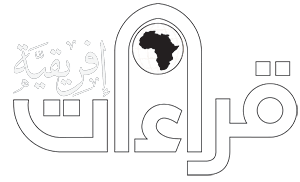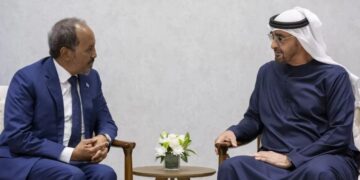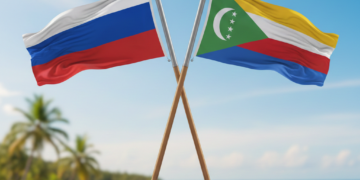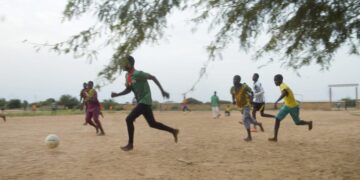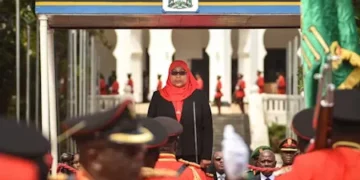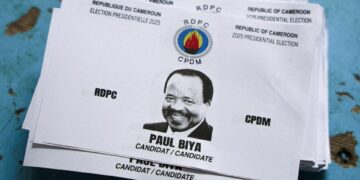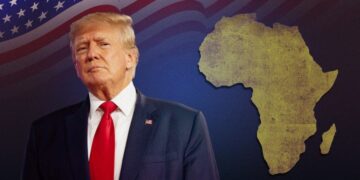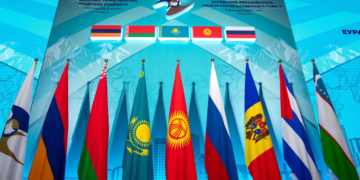Abstract: This paper discusses traditional African culture: its nature, characteristics, and the main factors that affect it, its values and worldview. Among those factors are: Christianity, Islam, colonialism, capitalism and recently globalization. Since culture is seen as the sum of the peculiarities shared by a people, and Africa being a vast continent with over (2000), varieties of languages, this paper has adopted the holistic view about the African culture. Also, some current transmitters of the cultural changes were discussed here, such as the Francophonie movement and the internet and social media networks, as well as some of the African responses to the foreign cultural influences such as: The Pan-Africanism, Negritude, the Kemit, the Afropolitan movements, the emerging African intellectuals that graduated from Arabic higher learning institutions known as the ‘Arabisants’, and some NGOs, etc. The African governments are not seen here as positive promotors or protectors of the African culture. However, it is argued here that, for the African culture to withstand the imposed imperial acculturation, Africa must, first of all, inevitably cling to the core elements of its culture. This is to articulate the process of the natural acculturation of the African culture with the rest of the world cultures. In addition to clinging to its cultural values, it is argued here that Africa cannot face the predatory imperial cultures alone, it is imperative on the African culture to join forces with its neighboring cultures that face the same treat and are struggling to secure their self-determination. Here, the triple heritage of Africa is invoked, namely: its traditional religion and values, Christian and Islamic cultural values and the Arabic culture. African culture has been a good contributor to each of the afore mentioned cultures. So, it is logical that the African culture returns to those constituents of its strength in order for Africa be an active and positive partner in the global cultural interactions.
الملخص: يبحث هذا المقال في الثقافة الأفريقية التقليدية: طبيعتها وخصائصها والعوامل الرئيسية التي تؤثر عليها وقيمها ونظرتها للعالم. ومن بين هذه العوامل: المسيحية والإسلام والاستعمار والرأسمالية والعولمة الحديثة. ونظرًا لأن الثقافة تُعتبر مجموع الخصائص المشتركة بين الناس، وبما أن إفريقيا قارة شاسعة بها أكثر من (2000) لغة، فقد تبنى هذا المقال وجهة النظر الشمولية حول الثقافة الأفريقية. كما تمت مناقشة بعض أدوات التغيير الثقافي الحالية هنا، مثل حركة الفرنكوفونية والإنترنت وشبكات التواصل الاجتماعي، بالإضافة إلى بعض الردود الأفريقية على التأثيرات الثقافية الأجنبية مثل: الأفريقانية، والزنوجة، والكيمت، وحركات الأفروبوليتانية، والمثقفين الأفارقة الناشئين الذين تخرجوا من مؤسسات التعليم العالي العربية المعروفة بـ "المستعربين"، وبعض المنظمات غير الحكومية، إلخ. لا يُنظر إلى الحكومات الأفريقية هنا على أنها داعمون أو حماة إيجابيون للثقافة الأفريقية. ومع ذلك، يُقال هنا أنه من أجل أن تصمد الثقافة الأفريقية أمام التثاقف الإمبريالي المفروض، يجب على أفريقيا، أولاً وقبل كل شيء، التمسك بالعناصر الأساسية لثقافتها. وهذا يعني صياغة عملية التثاقف الطبيعي للثقافة الأفريقية مع بقية ثقافات العالم. بالإضافة إلى التمسك بقيمها الثقافية، يُقال أيضاً هنا بأن أفريقيا لا يمكنها مواجهة الثقافات الإمبريالية المفترسة بمفردها، ومن الضروري أن تتعاون الثقافة الأفريقية مع الثقافات المجاورة التي تواجه نفس المعاملة وتكافح من أجل ضمان حق تقرير المصير. هنا، يتم استدعاء التراث الثلاثي لأفريقيا، وهي: دينها وقيمها التقليدية، والقيم الثقافية المسيحية والإسلامية، والثقافة العربية. لقد ساهمت الثقافة الأفريقية بشكل جيد في كل من الثقافات المذكورة أعلاه. لذلك، فمن المنطقي أن تعود الثقافة الأفريقية إلى تلك المكونات التي تشكل قوتها من أجل أن تكون أفريقيا شريكًا فاعلًا وإيجابيًا في التفاعلات الثقافية العالمية.
